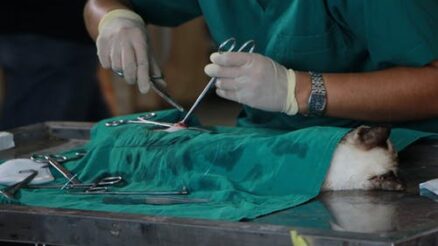Having a pet is a wonderful experience, but it also comes with the responsibility of ensuring their well-being. Timely routine exams play a crucial role in maintaining your pet’s health, allowing you to catch potential issues before they become more serious. This comprehensive guide will cover everything you need to know about scheduling preventive check-ups, ensuring you take the best possible care of your furry friend.
Annual Check-up Frequency and Components
Physical Examination
At least once a year, it’s essential to take your pet to the vet for a physical examination. Your veterinarian will visually and manually assess your pet, checking its eyes, ears, skin, coat, teeth, and gums, as well as feeling for any abnormalities in the body. A thorough physical exam is a foundation for a healthy, happy pet.
Diagnostic Tests
In situations where an issue is identified during the physical exam or based on the pet’s medical history, further diagnostic tests might be necessary. These tests can include blood work, urine tests, X-rays or ultrasounds, all aimed at helping the veterinarian understand the root cause of any detected problems.
Vaccination Schedule
Vaccinations are an essential aspect of preventive care for your pet. Your vet will help you establish a vaccination schedule based on the age, breed, and lifestyle of your pet. Adhering to this schedule can significantly decrease your pet’s risk of contracting life-threatening illnesses.
Dental Examination
Your pet’s oral health plays a significant role in their overall well-being. Taking care of their teeth and scheduling a yearly dental examination is an essential aspect of their preventive care. During the examination, the vet will assess your pet’s oral hygiene and recommend a suitable dental care plan. An essential aspect of dental care in pets deals with veterinary dentistry, a field that focuses on diagnosing, preventing, and treating oral health problems in animals. Integrating veterinary dentistry into your pet’s routine check-up plan ensures that their teeth and gums stay healthy.
Age and Breed Specific Health Concerns
Health Concerns for Kittens and Puppies
Young pets require more frequent visits to the veterinarian as they grow rapidly and need vaccinations and deworming. Regular check-ups during their early months ensure that they stay on track with their developmental milestones and address any health issues promptly.
Middle-aged Pets
As your pet reaches their middle age, it becomes vital to monitor changes in their health more closely. The frequency of routine exams for middle-aged pets largely depends on their medical history and health status. Bi-annual check-ups might be recommended in certain cases to better assess the overall health status of your pet. A veterinary wellness exam will give your vet a chance to evaluate your pet’s general well-being, spot potential health problems, and provide preventive care and recommendations to keep them in good shape.
Senior Pets
As pets age, they become more susceptible to health issues. Senior pets should undergo regular check-ups every six months, as health problems can develop quickly. These check-ups will focus on geriatric health issues, such as arthritis, heart conditions, vision or hearing loss, and age-related illnesses.
Breed-specific Health Tips
Each breed comes with its unique set of predispositions and needs. Your vet will be familiar with the specific health concerns associated with your pet’s breed and provide guidance on how to target those issues effectively.
Nutrition and Diet
Ensuring your pet receives a well-balanced diet will contribute to their overall health and longevity. The quality of the food they consume, the correct portion sizes, and avoiding table scraps are essential aspects of maintaining a healthy weight and preventing obesity in pets. In certain cases, your vet might recommend nutritional supplements to address nutrient deficiencies or enhance joint health.
Grooming Recommendations
A pet’s coat and skin condition are directly linked to their health status. Regular grooming not only keeps your pet looking neat and tidy but also aids in maintaining their health. Pet owners should brush and comb their pets as necessary to avoid matting, routinely check for parasites, and schedule professional grooming as needed. Maintaining a proper grooming routine is essential, and all the guidelines can be found on this page, making it convenient for pet owners to stay updated and informed.
Behavior Assessments
Behavioral issues affect not only your pet’s quality of life but also impact their overall health. Identifying and addressing these issues ensures they live a stress-free, happy life. It’s crucial to dedicate time to mental stimulation and exercise, which can contribute to preventing destructive behaviors.
Preventive Care Guidelines
Worm Prevention
Parasites can cause severe discomfort and health issues in pets. Regular check-ups at the vet’s office will help determine the best course of action for worm prevention and treatment, tailored to your pet’s individual needs and environment.
Flea and Tick Prevention
Fleas and ticks can cause severe skin irritation and transmit harmful diseases. Keeping your pet up to date on flea and tick prevention will protect them and ensure a healthy, itch-free life.
Heartworm Prevention
Heartworm disease can have devastating effects on your pet’s health. Regular heartworm treatment and prevention are essential in keeping them safe from this potentially fatal condition.
Activity Recommendations
Physical exercise is just as important for your pet as it is for you. Regular physical activity ensures they maintain a healthy weight, keeps their metabolism in check, and promotes mental stimulation. Tailoring the exercise routine to your pet’s age, breed, and physical ability will help them stay in shape and lead a healthy, active life.
Importance of Early Detection of Diseases
Early detection of diseases can have a significant impact on the prognosis and treatment of an illness in pets. Regular check-ups and diagnostic tests allow the veterinarian to catch potential health issues before they escalate, leading to more effective treatments and better outcomes.
Conclusion
Routine exams are the cornerstone of your pet’s health and well-being. By following the recommendations discussed in this article, you’ll be offering your pet the best possible care, ensuring they live a happy, healthy, and long life.


